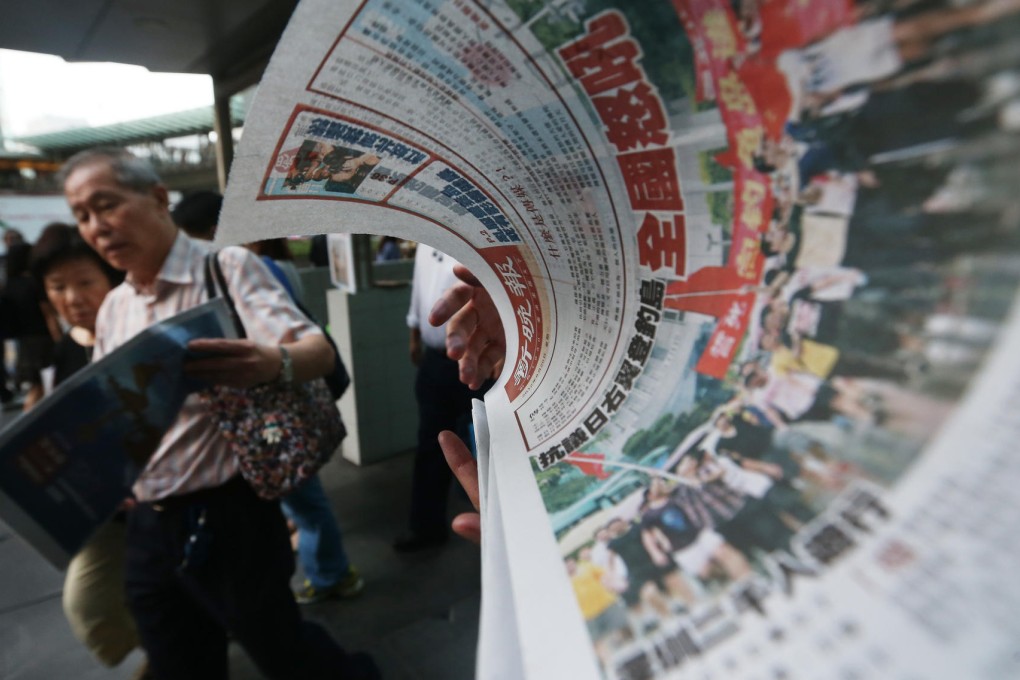Seven free tabloids may be one too many for Hong Kong
Pro-Beijing newspaper faces more crowded market than when its predecessor closed in 1997

The city's seventh free newspaper arrived to mixed reviews yesterday as some analysts began to wonder whether Hong Kong had finally reached the limit of its appetite for tabloid freebies.
With the reappearance of the pro-Beijing New Evening Post after a 15-year hiatus, the streets of Hong Kong can expect to be papered with nearly 3.7 million free newspapers - one for every other resident - each weekday.
The NEP, which was shutdown less than a month after Britain returned the city to Chinese rule in 1997, plans to distribute between 200,000 and 400,000 copies daily, Monday to Friday.
All but one of the seven free newspapers - The Standard - are in Chinese, although the NEP is the only one that publishes in the evening. Such free papers rely heavily on advertising revenue and are thus more vulnerable to economic swings.
"In face of an [economic] downturn now," said Dr Chong Tai-leung, an economics professor at Chinese University, "[the free newspaper market] is slightly less optimistic."
Dr Clement So, of the university's journalism department, also doubted that the market could handle more players. "It's almost saturated. Unless the NEP is proven to be a great success, it's [unlikely] someone else will join the market."
The previous version of NEP was a paid newspaper and established in 1950 by the fiercely pro-communist Ta Kung Pao newspaper. Now run by All Leaders media company, the paper pledged to be "firmly patriotic and Hong Kong-loving".